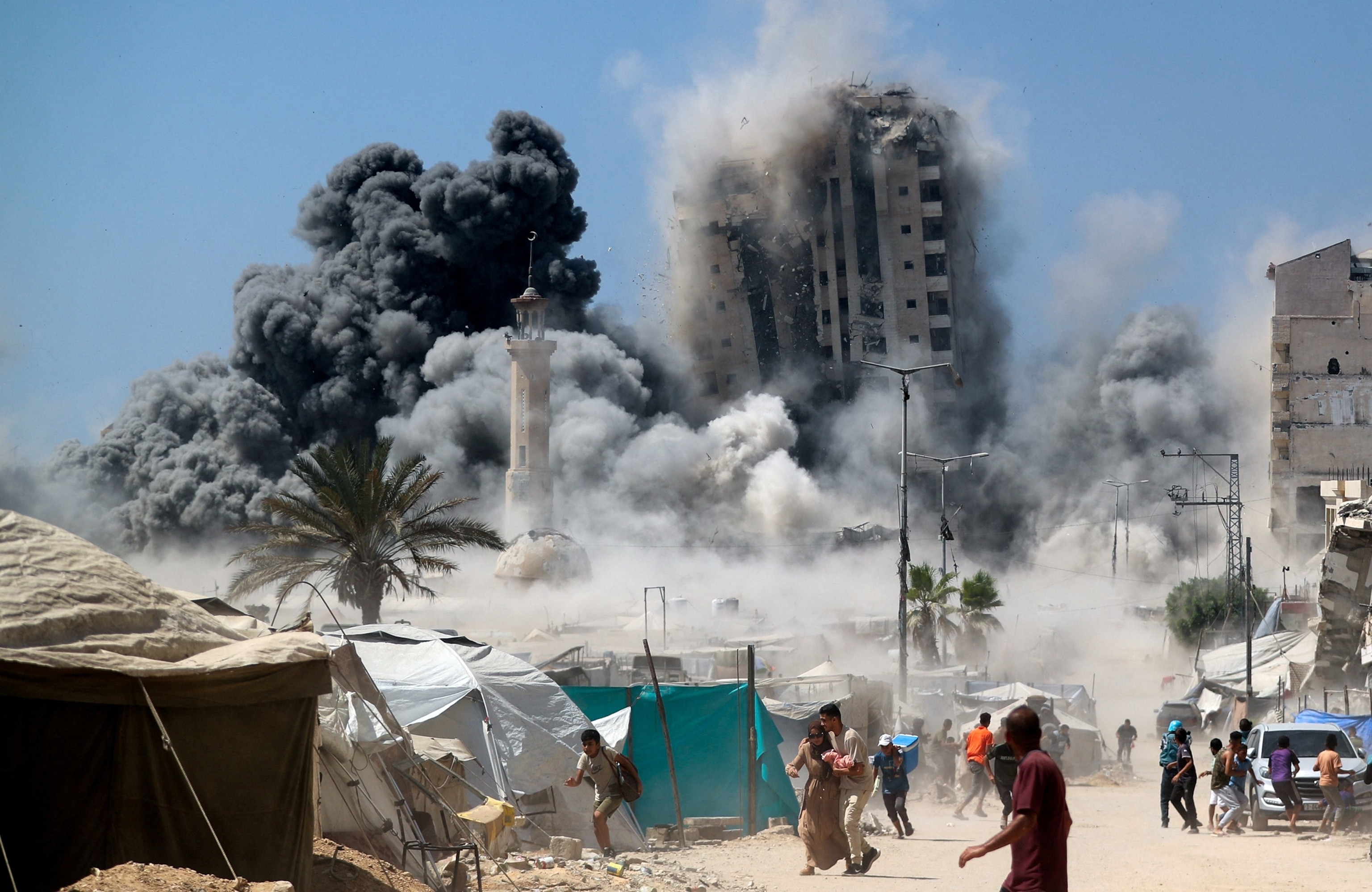Israel Intensifies Strikes in Gaza Amid Escalating Conflict
Israel has intensified its military strikes across Gaza, targeting Hamas positions and prompting mass civilian evacuations, as diplomatic tensions rise and international calls for a ceasefire grow louder.

Israel escalated its military campaign in Gaza on September 14, 2025, launching a series of intensified airstrikes against Hamas targets across the enclave. The Israeli Defense Forces (IDF) reported that the strikes focused on high-rise buildings in Gaza City, which they claim were being used by militants to monitor Israeli troop movements ahead of a planned ground advance. Palestinian sources indicated that dozens of civilians were killed in the latest wave of attacks, with casualties reported in Gaza City, Khan Younis, Rafah, and Deir al-Balah.
The IDF has repeatedly called on residents of northern Gaza, particularly Gaza City, to evacuate southward to designated humanitarian zones. According to Israeli and Palestinian reports, approximately 250,000 to 280,000 people—about a quarter of Gaza City's pre-war population—have fled the area in recent days. Israeli officials state that these measures are intended to protect civilians and facilitate the expansion of humanitarian corridors, with efforts underway to increase the daily flow of aid trucks into southern Gaza.
Diplomatic Fallout and International Response
The escalation comes amid heightened diplomatic tensions following an Israeli strike on Hamas leaders in Doha, Qatar. U.S. Secretary of State Marco Rubio arrived in Jerusalem for urgent talks with Prime Minister Benjamin Netanyahu, signaling continued American support for Israel but also expressing concern over the recent actions in Doha. Rubio's visit included meetings with Israeli leadership and families of hostages, as well as discussions on the future of Gaza and the ongoing hostage crisis.
Internationally, the United Nations General Assembly overwhelmingly endorsed a resolution calling for an immediate ceasefire, the release of all hostages, and the establishment of a Palestinian state with Hamas disarmed and excluded from governance. The resolution, drafted by France and Saudi Arabia, passed with 142 votes in favor, though both Israel and the United States rejected it as one-sided. Israeli Ambassador Dani Denon condemned the vote, describing it as a "prize for terrorism."
Humanitarian and Security Developments
As the conflict intensifies, Israel has announced upgrades to key border crossings to facilitate the delivery of humanitarian aid, aiming to allow up to 150 trucks per day into Gaza's southern zones. Despite these efforts, the humanitarian situation remains dire, with large-scale displacement and ongoing shortages of essential supplies.
Security concerns have also expanded beyond Gaza, with Israeli authorities reporting the interception of a drone launched from Yemen by Houthi forces, targeting the Ramon Airport region. The incident prompted air raid alarms in southern Israel, though no casualties or damage were reported. The Israeli National Security Council has issued heightened terror warnings for Israelis and Jews abroad as the Jewish holiday season approaches, citing increased threats from Iran-backed groups.
Political Moves and Regional Implications
Domestically, Prime Minister Netanyahu has advanced plans for the controversial E1 settlement project near East Jerusalem, further complicating prospects for a two-state solution. Reports have also emerged of Israeli discussions with several African nations regarding a program for the voluntary emigration of Gazans, a move that has drawn criticism from Palestinian leaders and human rights organizations.
The situation remains highly volatile, with the risk of further escalation and regional spillover. As international actors push for a ceasefire and renewed negotiations, the humanitarian and political crises in Gaza continue to deepen, underscoring the urgent need for a sustainable resolution.